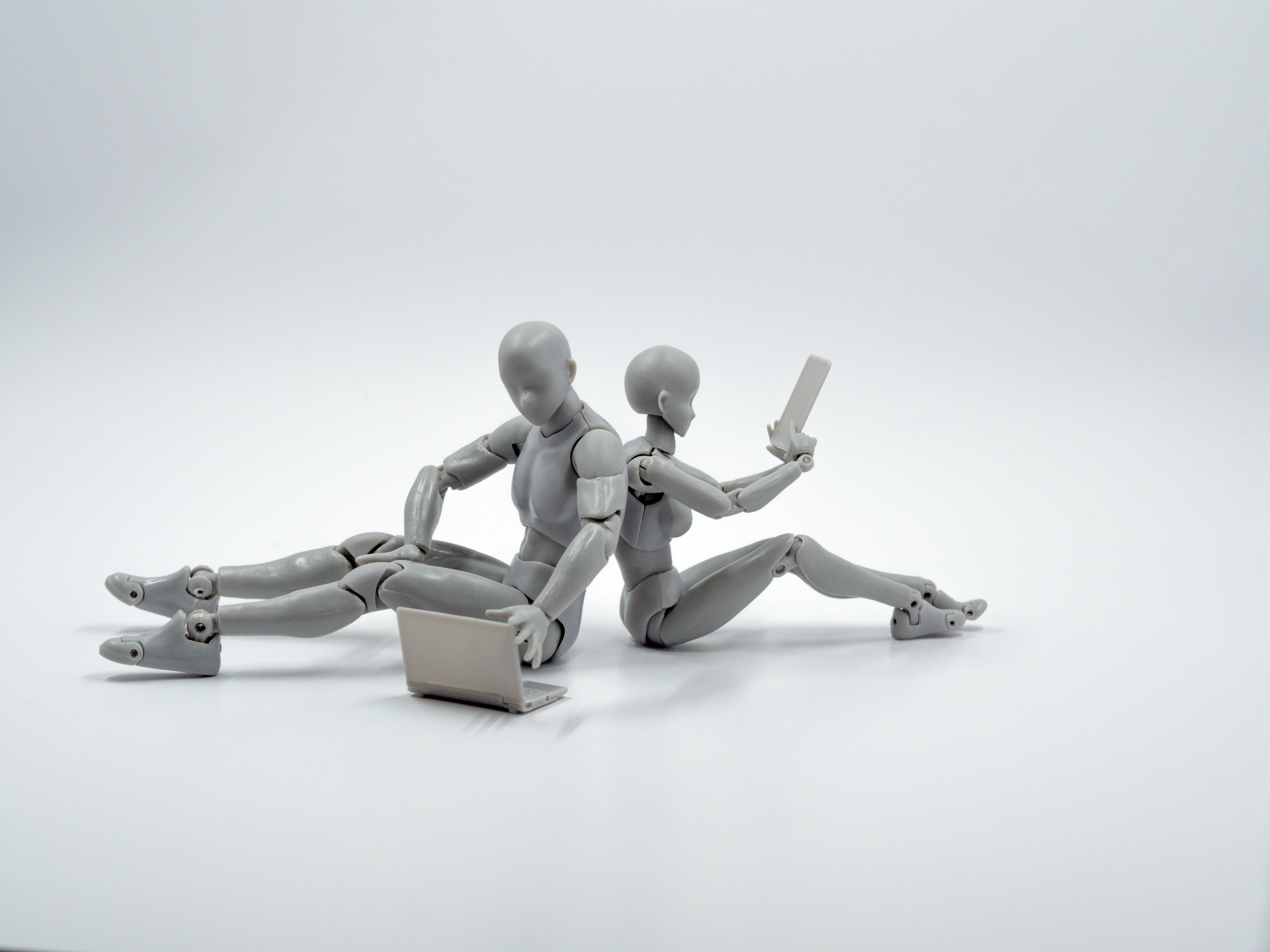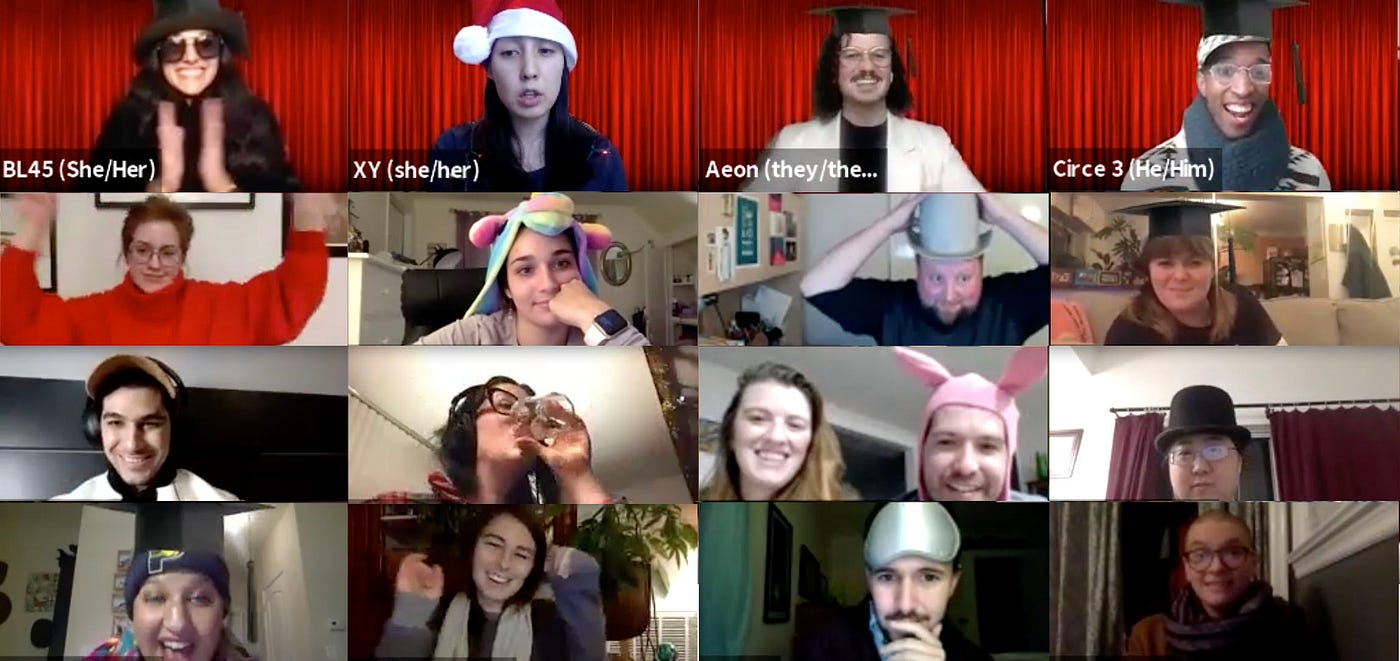‘iBuddy’ Asks The Audience to Define Humanity (Review)
The training of an AI ‘Humancare Firmware’ explores what it means to be human


AI is such a strange thing. It is probably one of the only things that I am equally curious about and terrified by. I remember joking as a teen about creating robots one day that would do everything humans could and laughing about how impossible it would be. Fast forward to 2016 when Sophia the robot was born and I stood corrected. Although Sophia appears human-like in every way, she is only able to mimic human behaviors like gestures, facial expressions, and emotions. Over time, algorithms have helped Sophia to learn more about what she is imitating, in order to be able to predict and react to human behavior., This idea is the exact framework that Totally Human’s newest remote production, iBuddy, uses as a structure.
iBuddy is an online experience in which audience participants are recruited to help “teach” AI companions for people who need emotional support during a futuristic version of a pandemic. In this world, humans have technology like personal bubbles to help them travel safely, but it’s still hard to see friends and family, so the iBuddy was created to help fill the void. iBuddies are entirely lifelike robotic companions that act as a friend to the user. The class of iBuddies the audience encounters are still in training, so they need some serious help with regard to social-emotional learning. Through a series of five different task-based rounds, audience participants must help their iBuddy learn appropriate responses and the reasoning why humans do certain things in order for their iBuddy to pass each round with enough points to graduate. If they don’t get enough points, the iBuddy will not be matched with a human companion.
(Minor spoilers follow.)

With tasks like instructing them how to make a peanut butter and jelly sandwich when their human needs comfort food or how to pick out the perfect birthday gift based on their human’s needs and taste, this experience asks the audience to really consider the details of what it means to be human. The more we could get our iBuddy to understand (or at least memorize) about the task, the better score they got. For example, in one round, our group did well by not only helping Aeon (our assigned iBuddy) to choose a thoughtful gift but also by helping them to learn why choosing that gift was appropriate and what it might mean to their human. While trying to collaborate with a group of strangers on Zoom is always a little difficult, as the group realized how to instruct Aeon better, members started offering personal examples from their lives to help Aeon understand more, which resulted in a formation of a sort of temporary community within our group.
Get Allie Marotta’s stories in your inbox
Join Medium for free to get updates from this writer.
SubscribeSubscribe
This is what was most remarkable about the experience. Although the entire event was thoughtful and well-executed, I most enjoyed the bond our group created through both the shared task of training Aeon and helping them succeed, but also by all of us learning how to collaborate together and sharing with each other as we did. Connection is what audiences are missing the most from live theatre, and iBuddy did a great job of fostering exactly that. I also really appreciated the structure of the piece: the format was clear and easy to follow with enough variation that it wasn’t predictable. The content also felt inventive and fresh, and the experience didn’t lag, which are two of my most common difficulties with remote theatre, so overall I found the creation of the experience well done.

The other shining stars of the experience were the performers who portray the iBuddies themselves. Audience participants stick with the same performer throughout but get to encounter the full ensemble during presentations after each round in which each iBuddy shares what they learned. This was a clever way to give a taste of each performer without compromising the structure, which I really enjoyed. Each performer had very different takes on what style of “robot” they were: some were easily excitable and full of energy and others were very technological and concise. I spent time with Aeon, played by Collin Quinn Rice, who was probably the closest to what I think of as a typical “robot” with stunted speech and crisp movements, but somehow still warm and endearing. I was really impressed by their ability to balance facilitating the group and performing the character; it never felt like Rice was compromising their performance nor the flow of the experience, which is a difficult skill to master.
Overall, iBuddy was a really lovely experience. I find it hard to engage wholly in remote work and often feel like the stakes aren’t real, but iBuddy was able to find a way to mitigate both issues. By using a group participation format, folks are able to engage at whatever level they see fit. Somehow the stakes feel very real, which I can’t help but think is tied to the responsibility of training something that isn’t actually human in the world we live in, but feels so human to the audience. The right combination of structure and excellence in performance adds to the effect, but the intention behind it all is what really matters. Putting emphasis on the mundane opened my eyes to how special it can be to be human, and how much I don’t appreciate that fact. I left iBuddy feeling like the things I do everyday have meaning, because they do, we just don’t always see it.
iBuddy has concluded but is available for private group bookings.
Discover the latest immersive events, festivals, workshops, and more at our new site EVERYTHING IMMERSIVE, new home of NoPro’s show listings.
NoPro is a labor of love made possible by our generous Patreon backers. Join them today!
In addition to the No Proscenium web site, our podcast, and our newsletters, you can find NoPro on Twitter, Facebook, YouTube, Instagram, in the Facebook community Everything Immersive, and on our Slack forum.
Office facilities provided by Thymele Arts, in Los Angeles, CA.